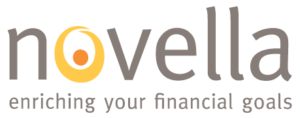Are you stressed about retirement planning in Canada? You’re not alone.

According to a survey from CIBC and Maru/Blue, forty per cent of Canadians are worrying about the effects of COVID-19 on their retirement plans. In this blog post, we look at the three main reasons why Canadians feel stressed about retirement, and how to prepare for retirement with the takeaways from Tom Hegna’s book, Don’t Worry, Retire Happy.
Reasons why Canadians are stressed about retirement
1. Never Think About Retirement Planning
Thirty years ago when the Defined Benefit Pension plan was available, people didn’t have to think much about retirement planning in Canada. This plan placed the responsibility for retirees’ income on employers and the government and most people were covered by the plan.
However, by 2011, only 18% of Canadians were covered.
2. No Clear Financial Strategy
Largely because people don’t know how to plan for retirement, many people decide to just wing it, hoping there will be enough money for retirement when they are ready.
Unfortunately, this strategy is dangerous. About ⅔ of Canadians don’t even know how much money they will need in retirement or how long they will need it. However, these questions are important to answer along with what happens if you need long-term care.
3. Focus on Assets, Not Income
Before retirement, people are in the accumulation phase. They are used to focusing on growing their assets. However, retirement is the opposite, but many people don’t have a clear plan for this.
Most investment ads are focused on the accumulation phase. For example, everyone is always trying to sell us on RRSPs as an investment tool for retirement or we hear about the tax benefits and how it facilitates saving for the long-term. However, no one explains how to take out the money at retirement. For example, did you know you have to take the money out by age 71? Otherwise, you could end up paying more in taxes. When you retire, your game plan has to change, but many people don’t know this.
So what do you need to do?
How to prepare for retirement in Canada
As a financial advisor for over 10 years, I always reference the book Don’t Worry, Retire Happy by Tom Hegna and encourage my clients to consider the following four takeaways from the book.
Define What Retirement Is to You
First off, you need to define what retirement is to you. For me, I think retirement should encompass the ability to do whatever I want to do without having to worry about bills. In other words, financial freedom.
Of course, everybody has a different idea of their ideal retirement. One person might love the idea of sitting on the couch all day while another would love to travel and will take 5 trips a year.
Keep in mind that there are three stages of retirement.
- The Go-Go Years: You finally have the freedom to pursue your interests. You travel, go golfing, play tennis, and generally keep your days full and busy.
- The Slow Go Years: You’re still doing the things you love, but at a slower pace.
- The No Go Years: Your health is declining and you’re pretty much stuck in bed.
The point of this isn’t to be depressing, but to remind you to enjoy the early years of your retirement while you can and adjust your expenses over time. Not everyone retires with the same amount of money or has interests that cost the same amount, so you must plan carefully.
To do this, some people choose a hybrid retirement where they stay in the workforce. This helps supplement your retirement income, keeps your mind active, and allows you to qualify for hefty benefits such as health or life insurance. After all, it’s not unusual for people to live to age 90 and beyond. About 45% of retirees are currently enjoying this option.
Always, Always Watch Out for Inflation
With COVID-19, the Canadian government is increasing debt like there’s no tomorrow. Unfortunately, tomorrow we will all be paying for it in the form of higher prices for goods and services.
The book suggests that inflation won’t affect you much if you retire at 70 and die at 75. However, if you retire at 55 and live into your 90s, inflation can cut your buying power by 50%!
Consolidate Your Accounts
I’ve worked with people who have over 30 different accounts in different banks. So confusing! I recommend consolidating accounts into four basic piggy banks:
A. Current Expenses
This is to pay your daily living expenses, including “weekend” bills like country club membership fees, etc. Remember, every day is your Sunday in retirement!
B. Guaranteed Long-Term Income
Guaranteed money for long-term expenses like a pension, government benefits, rental income, term deposits, etc.
C. Investment Funds
Aim to at least beat inflation with these funds. This is stockpiled money you can use to fund piggy bank A & B as necessary.
D. Emergency Funds
By age 75, 5 in 10 Canadians will need some type of medical care, but don’t expect the government programs to be enough.
Work with a Professional for Retirement and reduce stress
It is proven that having a retirement plan in place makes people happier. A professional can take the confusion out of the process, especially for those who don’t have the time or interest to do their retirement planning in Canada themselves. If you would like a complimentary consult with me, please reach out to me through email here. You can also find more information about what I do by visiting me here.
You can also check out my YouTube channel to watch informative videos and learn about retirement in Canada!
